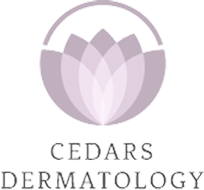Topical Retinoids: Are they all the same?
Any dermatologist worth their salt will advocate the use of topical retinoids to address anti-aging concerns. Since the first retinoids were developed in the early 1970s, they have become a firm favourite with both beauty editors and cosmetic dermatologists alike.
Topical retinoids are derivatives of vitamin A. They work by increasing skin cell turnover, boosting collagen production, and improving skin tone and pigmentation.
But are they all the same? Is one retinoid product just as good as the next? Are over the counter products similar to prescription-strength ones?
Retinyl esters, retinol, retinaldehyde, adapalene, tretinoin, isotretinoin, and tazarotene are all different types of retinoids. The key, however, is that your skin is only able to use a retinoid in the form of retinoic acid.

All types of retinoid product applied to the skin are converted to retinoic acid. So a retinol-containing product is firstly converted into retinaldehyde and then retinoic acid i.e. a two-step process. Products that require the fewest conversion steps tend to be more effective for anti-aging purposes.
Retinyl esters, retinol, and retinaldehyde are available over the counter. Tretinoin (retinoic acid), isotretinoin (synthetic retinoic acid), and the newer retinoids, adapalene and tazarotene are prescription only.
Most of the initial scientific studies looking at skin aging and retinoids were carried out with tretinoin (retinoic acid). Tretinoin was found to be 20 times more potent than retinol. However, that said, 1% retinol has been shown to be effective at 12 weeks in improving fine lines and wrinkles.
If prescription strength tretinoin is more effective then why do we bother with the other agents? Well, this largely comes down to tolerability. The more potent the retinoid, the higher the likelihood that it will cause problems with skin irritation, such as burning, stinging, redness, and scaling. There is a trade-off between clinical benefit and potential side-effects.
I would recommend, however, that if you are looking for a suitable over the counter retinoid product, choose one that contains either retinol or retinaldehyde. These are likely to be more effective than the retinol derivatives such as retinyl acetate, retinyl propionate, and retinyl palmitate. There are many good non-prescription strength products available e.g. Skinceuticals retinol 1%, Avene retrinal 0.1%. If there remains any doubt, find a friendly dermatologist who will be able to run through the ideal product for your skin type and anti-aging concerns!
Dr Anjali Mahto is a dermatology consultant at the London North West Hospitals NHS Trust. She works privately at the Cadogan Clinic and Highgate Hospital and is happy to consult on any skin, hair, and nail disorders in adults and children. Anjali has trained in dermatology at some of UK’s leading teaching hospitals including Imperial College Healthcare and the Royal Free Hospital. She is a spokesperson for the British Skin Foundation and expert dermatologist for Vichy Laboratoires UK.

